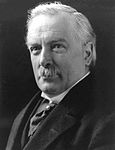United Kingdom general election, 1922
|
|
|||||||||||||||||||||||||||||||||||||||||||||||||||||||||||||||||||||||||||||
|---|---|---|---|---|---|---|---|---|---|---|---|---|---|---|---|---|---|---|---|---|---|---|---|---|---|---|---|---|---|---|---|---|---|---|---|---|---|---|---|---|---|---|---|---|---|---|---|---|---|---|---|---|---|---|---|---|---|---|---|---|---|---|---|---|---|---|---|---|---|---|---|---|---|---|---|---|---|
|
|||||||||||||||||||||||||||||||||||||||||||||||||||||||||||||||||||||||||||||
|
|
|||||||||||||||||||||||||||||||||||||||||||||||||||||||||||||||||||||||||||||
|
All 615 seats Constituency results 308 seats needed for a majority |
|||||||||||||||||||||||||||||||||||||||||||||||||||||||||||||||||||||||||||||
| Turnout | 73.0% ( |
||||||||||||||||||||||||||||||||||||||||||||||||||||||||||||||||||||||||||||
|
|||||||||||||||||||||||||||||||||||||||||||||||||||||||||||||||||||||||||||||
|
|||||||||||||||||||||||||||||||||||||||||||||||||||||||||||||||||||||||||||||
| Dec 1910 election • MPs |
| 1918 election • MPs |
| 1922 election • MPs |
| 1923 election • MPs |
| 1924 election • MPs |
The United Kingdom general election of 1922 was held on Wednesday 15 November 1922. It was the first election held after most of the Irish counties left the United Kingdom to form the Irish Free State, and was won by Bonar Law's Conservatives, who gained an overall majority over Labour, led by J. R. Clynes, and a divided Liberal Party.
The Liberal Party were split between the "National Liberals" following David Lloyd George, who had been ousted as Prime Minister the previous month, and the "Liberals" following former Prime Minister H. H. Asquith. The Conservatives had been in coalition with the National Liberals led by David Lloyd George until the previous month, at which point Bonar Law had formed a Conservative majority government.
Although still Leader of the Liberal Party and a frequent public speaker, Asquith was no longer a particularly influential figure in the national political debate, and he had played no part in the downfall of the Lloyd George coalition. Most attention was focussed on the new and most recent Prime Ministers. Asquith's daughter Violet Bonham-Carter, a prominent Liberal Party campaigner, likened the election to a contest between a man with sleeping sickness (Bonar Law) and a man with St Vitus Dance (Lloyd George).
Some Lloyd George National Liberals were not opposed by Conservative candidates (e.g. Winston Churchill, who was defeated at Dundee nonetheless) whilst many leading Conservatives (e.g. former leaders Sir Austen Chamberlain and Arthur Balfour and former Lord Chancellor Lord Birkenhead) were not members of Bonar Law's government and hoped to hold the balance of power after the election (comparisons were made with the Peelite group - the ousted Conservative front bench of the late 1840s and 1850s); this was not to be, as Bonar Law won an overall majority.
...
Wikipedia




